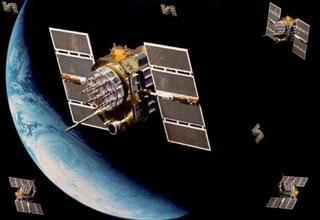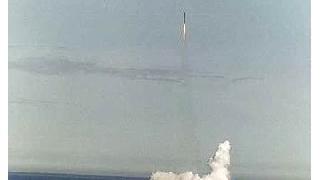
An artistic illustration.
BEIJING (BNS): In a major leap towards establishing an independent satellite navigation network as against US' Global Positioning System, China on Tuesday began operating its indigenous satellite navigation network, known as Beidou.
With the system achieving Initial Operational Capability wherein it will provide services in and around the Asia-Pacific region, China became the third country after the US and Russia to develop and operate a home-grown Sat-Nav system.
On December 2 this year the country had put in orbit its 10th Beidou satellite.
The satellites presently in orbit will provide navigation and positioning services with high precision and accuracy for industries and sectors including mapping, fishery, transportation, meteorology and telecommunication in and around China.
The system, with 10 orbiting satellites, covers an area from Australia in the south to Russia in the north. Signals can reach the Xinjiang Uygur autonomous region in the west and the Pacific Ocean in the east, Ran Chengqi, director of the China Satellite Navigation Office, was quoted as saying by China Daily.
With six more satellites to be launched next year, the system will cover a wider area and eventually the entire globe by 2020 with a constellation of 35 satellites, he said.
China began developing the Beidou or Compass navigation satellite in 2000 to reduce dependency on the US-controlled Global Positioning System (GPS) and groom it as a rival to it.
According to some experts, the system could also be used for tracking down military targets in the region.
US's GPS and Russia's GLONASS are the only two global satellite navigation systems operational at present.
Europe has initiated efforts to set up its own navigation network by orbiting first two Galileo satellites in October this year.
 Previous Article
Previous Article Next Article
Next Article












The Indian Air Force, in its flight trials evaluation report submitted before the Defence Ministry l..
view articleAn insight into the Medium Multi-Role Combat Aircraft competition...
view articleSky enthusiasts can now spot the International Space Station (ISS) commanded by Indian-American astr..
view article